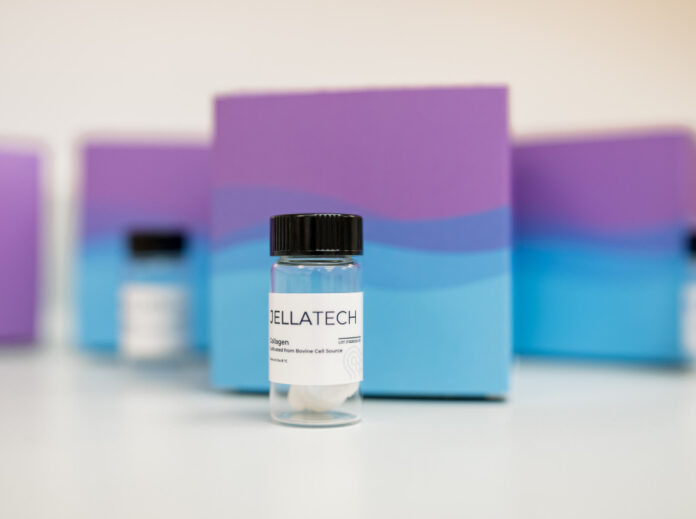Would you eat lab-grown meat? Would you give the same answer if someone asked you to use a beauty product that had lab-grown collagen as an ingredient?
Cellular agriculture (the process of growing an agricultural product from cell cultures) has been gaining momentum in recent years. Earlier this year, the U.S. Food and Drug Administration approved Upside Foods and Good Meat's plan to sell their lab-grown chicken through restaurants. Both companies, in addition to many other cellular agriculture startups, have raised large amounts of venture capital.
The rise of cellular agriculture hasn't been linear or easygoing, of course, and not everyone is into it. Italy, for example, is working to ban this product entirely, and various surveys have produced mixed results about whether people would actually eat lab-grown meat.
But not everyone is using technology to create another alternative to meat.
Stephanie Michelsen first realized the potential of cellular agriculture while working in the alternative protein sector. As she started to think about it more, she realized that perhaps an opportunity had been overlooked: animal proteins like gelatin and collagen have use cases that go far beyond the realm of food.
“I started thinking about the obstacles to moving towards a future without animals. If tomorrow all animal culture disappeared, what would be missing? Why don't we have a solution? Michelsen said. “For me, it was the byproducts that are only found in these animals. “That’s how I got to collagen.”
Cultured collagen is the basis of his startup Jellatech, which was founded in 2020 and recently raised a $3,5 million seed round led by byFounders VC with the participation of Milano Investment Partners and Joyful VC, among others.
Jellatech stands out in the increasingly crowded cellular agriculture space because it is tapping into a larger opportunity than some of its seafood- and meat-focused counterparts.
There will be a sizable market for lab-grown meat and seafood, but we must also recognize that the market will be limited. Not everyone is going to want to eat lab-grown meat, and the alternative protein space is already struggling, at least in public markets. There are many distribution channels for meat (restaurants, stores, direct to consumer) and it seems unlikely that Italy will be the only country that does not agree with the concept.
Jellatech is designed to overcome many of those challenges.
There are many more use cases and potential revenue streams for lab-grown gelatin or collagen than there are for meat. In addition to being used in food products, these proteins can also be used in industries such as personal care and beauty, biomedicine, and materials. And all of those sectors have different regulations and serve a wide variety of customers and companies that may be okay with some ingredients being grown in a lab.
“We are not confined to this particular application or industry,” Michelsen said. "We realized early on that we were getting interest and inquiries from the biomedical space saying they loved what we were doing."
Michelsen added that this approach has also allowed the company to think better about marketing and growth. While launching into a market like beauty may require a larger team and facility than you can assemble now, Jellatech can start with smaller, more profitable use cases that will allow you to start generating revenue.
Michelsen said the company has demonstrated its ability to create both bovine and human collagen and is now looking for ways to commercialize and scale it.
“How can we make more quantity cheaper, more efficient and faster?” he said she about the challenges the startup is facing right now. “We're at a really good point, with a lot of different species. “We now want to expand and build this portfolio of proteins and really focus on proteins that are found exclusively in animals and humans.”
Sometimes new technology gets pigeonholed into the first idea that catches the attention of venture investors, so it's nice to see a startup like Jellatech go against the grain.
“We are very fortunate to do what we do,” Michelsen said. “There are so many industries we can get into and we can be quite agile. We are not limited to one region or app, which has been a real blessing for us.”




